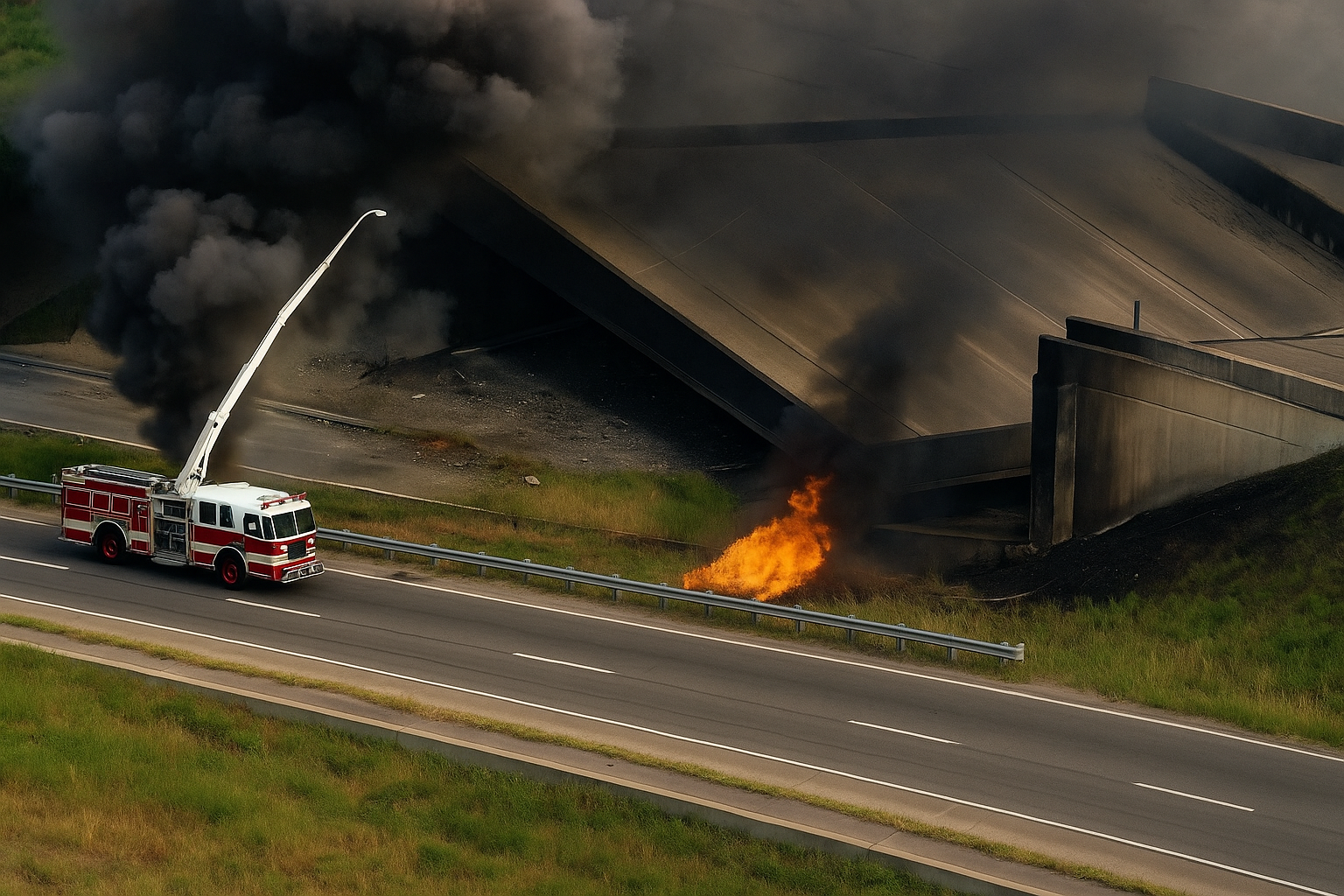Spokane at the Breaking Point - A Clear Path Forward
|
A Unified Declaration of Emergency
Spokane continues to lose ground in our fast-moving crisis. Overdose deaths are surging, fentanyl is everywhere, and the systems meant to respond are siloed, overwhelmed, and falling behind. It’s time for a new approach: a tri-government fentanyl emergency declaration, urgently uniting the resources of the City of Spokane, Spokane County, and the State of Washington in coordinated action.
|
Emergency Response - Portland, Multnomah County, and the State of Oregon declared a unified 90-day fentanyl emergency in January, 2024, reducing overdose deaths nearly 40% within months
|
Background
Spokane is in the grip of a deadly and rapidly worsening emergency. With nearly 500 overdose deaths projected in 2025, we now appear to have the highest overdose death rate of any county in the United States. The crisis is glaringly visible —in shelters, sidewalks, parks, neighborhoods, and downtown corridors. It is no longer just a public health issue—it’s a public health and safety issue, a business issue, and a moral emergency.
At the center of Spokane’s crisis is Fentanyl. Fentanyl is not just another street drug—it’s 50 times more potent than heroin, and the price has dropped by more than 95% in recent years. Worse still, Fentanyl’s precursor chemicals are constantly modified by illicit chemists – making the drug stronger, more addictive, and more deadly— often staying a step ahead of current drug classifications and regulations.
Beyond this staggering human toll, this crisis is unraveling the city’s civic fabric. Businesses are closing or relocating and jobs are being lost. Spokane’s ability to attract investment, retain talent, and support vibrant neighborhoods is at serious risk. As the City’s former CFO for 17 years, I believe that without bold, immediate action, Spokane’s credit rating is likely to be impacted, further damaging our ability to recover.
How Should Spokane Respond?
Simply put, we must move faster than the crisis itself. A unified joint emergency declaration would allow us to do just that by injecting into our slow-moving-by-design institutions and systems the speed, agility, and accountability needed to meet this moment.
Consider this example of what can be accomplished under well executed emergency management:
|
In 2023, a critical section of Interstate 95 collapsed in Philadelphia due to a tanker truck fire. Following typical timelines, regulations, and scheduling, repairs would have taken an estimated three years. But through an emergency declaration, streamlined permitting, coordinated agency work, and 24/7 construction, the highway was rebuilt and reopened in just 12 days. That’s the power of urgent coordination and a shared mission. And these principles of emergency coordination and deadlines can be applied to any crisis – including Spokane’s health and safety crisis
|
June 11, 2023, a tanker truck carrying gasoline caught fire beneath a Philadelphia overpass that carries Interstate 95 – a key section carrying about 160,000 vehicles daily
|
Portland’s Emergency Response: A Blueprint and a Warning
Just a six-hour drive from Spokane, Portland offers a window into what’s possible when a city acts decisively. In the wake of Oregon’s 2021 decriminalization law, Measure 110, the entire state experienced a tremendous spike in fentanyl-related deaths—up 74% in 2020 alone.
|
Downtown Portland has been severely impacted by the Fentanyl crisis
|
Portland was hardest hit, and in an unprecedented – though very belated – response, Portland, Multnomah County, and the State of Oregon jointly declared a 90-day fentanyl emergency early last year, centered on three clear goals:
- Improve livability in downtown and surrounding neighborhoods
- Reduce overdose deaths and expand access to services
- Enhance public safety for all residents, including those in crisis
See: Crisis Response Report: Fentanyl State of Emergency - Portland, Multnomah County, State of Oregon
To meet these goals, they activated the Incident Command System (ICS)—a disaster-response framework that brought daily briefings, after-action reports, real-time data tracking, and cross-agency leadership to the forefront. Additionally, the effort turbocharged unprecedented alignment and coordination across the entire system.
The results were immediate and dramatic: overdose deaths dropped nearly 40% within months. More importantly, critical coordination and long-needed bureaucratic reforms were institutionalized—and that work continues to this day. Oregon didn’t just fix a crisis temporarily—they laid the groundwork for sustained, long-term collaboration and recovery.
Spokane’s Moment to Act
Let’s not reinvent this wheel – Spokane can immediately adopt a similar model here.
A joint emergency declaration would allow us to:
- Map gaps in addiction, mental health, and public safety systems
- Add and revise local ordinances and plan for state law revisions to enhance our response
- Fast-track critical treatment and enforcement infrastructure
- Coordinate city, county, state, healthcare, housing, community-based organizations, and business sectors
- Establish clear objectives and measurable outcomes tied to firm deadlines
Act Now, Act Now, Act Now, Act Now…..
Spokane is losing nearly 10 people every week to preventable overdoses. But it’s not just lives at stake—our jobs, our businesses, and our economy are at risk too.
Portland faced the same dilemma and their experience highlights both the power of decisive emergency action, but also the cost of delay. Just this week, Portland’s premier downtown office tower—a 42-story landmark—was put on the market at more than 80% below its previous value. This is just one example of Portland’s economic fallout, and a stark symbol of how the city’s slow response allowed the crisis to hollow out the city’s core with devastating long-term consequences for the city’s jobs and economic vitality.
|
Portland’s U.S. Bancorp Tower is over half empty and up for sale at 80% below its previous value
|
Spokane cannot afford to make the same mistake Portland did by waiting too long to act. Last November Portland elected a new mayor, an entirely new city council, and adopted a new form of government – culminating in a bold and coordinated emergency response. But it waited so long that even those sweeping changes may not be enough to reverse the damage.
The lesson? Spokane cannot bank solely on future elections to bring new leadership. The time for bold, decisive action is NOW – and the citizens of Spokane must demand it.
|
Tax Shift Warning: Downtown's Crisis Could Cost You
|
With downtown commercial properties likely facing substantial revaluations due to record vacancies and a spiraling public safety crisis, you might assume that the city will lose significant property tax revenue.
But here’s the catch: it won’t. Spokane typically takes the maximum 1% property tax increase allowed by law each year, along with revenue from new construction. So even when downtown assessed values plummet, the city still gets its raise—meaning other properties, especially personal residences, will shoulder a larger share of the tax burden. And the more downtown falters, the more that burden shifts to Spokane homeowners. It’s one more hidden cost of inaction—and one more reason decisive leadership can’t wait.
|
Today marked the 94th consecutive day of our 5 a.m. Crisis Walks—one hour, seven days a week, departing from City Hall.
These walks have been a steady reminder of the urgency of the crisis we face. And of the deep humanity and tragedy unfolding on our streets – destroying lives and eroding our city. We’ve seen the faces behind the headlines, met people living in crisis, and heard stories that demand not just hope and attention, but action.
Over the past 94 mornings, I’ve been blessed with extraordinary company and meaningful conversations on every walk. This morning was no exception. Walking alongside Sheriff John Nowels, his wife Shawna, and their daughter Sarah, we reflected on both the urgency of Spokane’s crisis and the deeply personal journeys many of us have faced through addiction – including their family’s and my own. It was a profound gift for me to witness another mother, father, and daughter reflect together as a family – and even more so when the father is also a community leader working the front lines of our crisis.
Tomorrow, I’ll walk at 5 a.m. in Portland, then Saturday in Tacoma, and Sunday and Monday in Seattle. I’m building a comparative baseline—to observe, listen, and gain perspective on how neighboring cities are confronting similar challenges.
I committed to 100 consecutive walks, and next Wednesday will mark that 100th day. I continue walking as often as I can, but the daily walk and its mission will continue: Barry Barfield, coordinator of the Homeless Coalition, will continue leading the walks going forward – until this crisis is resolved – departing each morning at 5 a.m. from the southeast corner of City Hall.
We meet each morning at City Hall to remind our elected leadership that what we’re about to see should not be happening. We walk to see and to listen. And we do it at 5 AM as a metaphor for the discomfort and urgency we must all be willing to feel for as long as this crisis continues.
|
|









